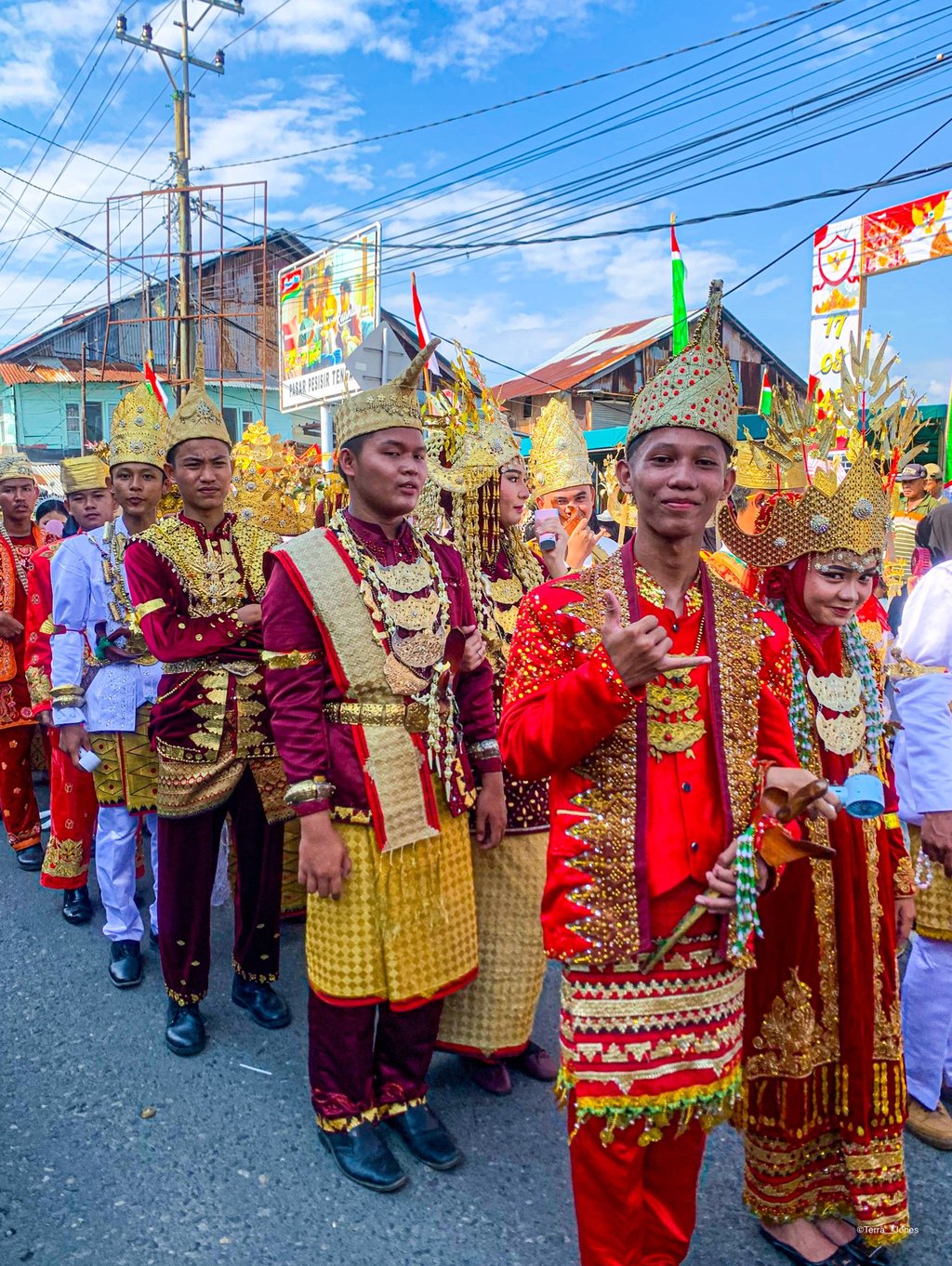Why I Still Believe in Humans
What remote villages taught me about childhood, freedom, and the future of work.
8/16/20253 min read


It’s been less than a week since I arrived in this beautiful corner of northwestern Indonesia, carrying a surf bag full of boards, a couple of t-shirts, and a pair of boardshorts.
After months of traveling, I’ve learned that the best way to move around is with only the essentials — it’s liberating, and it feels just right.
Long-term travel has brought me many gifts, but the one I value most is the perspective of living simply. Indonesia — despite being the sixth-fastest growing middle-class economy in the world — embodies this way of life perfectly.
This young nation recently celebrated its independence from Dutch colonialism. Indonesians are deeply proud of their unity, and Independence Day is proof of that, no matter where you experience it.
I was in South Sumatra, where a mile-long parade filled the streets with men, women, and children cheering joyfully. People marched in traditional costumes representing the country’s diverse regions and communities — including the LGBT community. Yes, that’s right, even in a Muslim-majority country.
I’ve spent the past five months coming and going from Indonesia, and with every new region I discover, I stand in awe of its diverse landscapes, welcoming culture, and sincerity.
Everywhere we ride our motorbikes, people wave and greet us with the classic “Hello Mister!”
It can be overwhelming at times, but it fills my heart with joy — especially when children run into the streets to wave at us, strangers they’ve never seen before.
Surfing is still new here. After school, kids play naked in the shorebreak, tumbling with the small waves. They build little shelters from driftwood to play hide-and-seek in the sand. Their lives feel pure. They don’t speak English, they don’t know about politics or artificial intelligence, and they couldn’t care less.
It reminds me of my own childhood — those summers in Liguria, spending every day from sunrise to sunset in the water, then moving to Sicily for a month to see my nonna. My gang of friends would pick me up after breakfast, and we’d roam the whole village, up and down the hills, searching for treasures, adventure paths, and thrills. At lunch, we’d rush back home, only to disappear again right after, unwilling to waste time sitting with adults and their boring conversations.
Life in the villages of Southeast Asia is very much the same — like those innocent summers when freedom was granted by the watchful eyes of the elders sitting outside their homes. No matter how far you wandered, everyone knew everyone. There was no need for phones; mothers’ voices would echo down the alleys, sharp and commanding.
And if you didn’t run home quickly enough, a slap was waiting for you.
That was such a different life. But now, with the luxury of time and a modest budget, I can taste the slow life again. It feels like reliving an endless childhood summer.
When it comes to adulthood, I’ve realized I don’t want to return to my old routine. If I one day have a family, I’d rather live with less in a place where children can play freely in nature than live with endless distractions and polluted air.
I’m still figuring out my exit strategy, but I’m working on it.
Before leaving home, instead of locking myself into a mortgage, I began investing in dividend stocks, real estate investment trusts, and crypto to generate passive income. At the same time, I’ve been reevaluating my knowledge and skills to repurpose them in an asymmetric way.
Even though I took unpaid leave from my employer, I don’t see myself going back to the office, chasing clients all day and all night. I’ve accumulated enough knowledge to support startup founders and professionals of all levels by offering coaching and guidance tailored to their needs.
Technology may reduce the need for heavy lifting in many industries, but the need to talk with someone who has lived through diverse scenarios is just as important as ever.
While many creators evangelize automation, I place my bet on human interaction — at least as the starting point.
We are drowning in information, yet starving for meaningful one-on-one conversations.
After drawing parallels between childhood in Indonesia and my own in Italy thirty years ago, you might call me old school. But I still believe manual skills are more valuable in certain contexts than the automation machines that aim to replace them.
All indicators suggest that technology is pushing us toward higher productivity with less stress. Yet my personal feeling is the opposite.
And when I speak with people who travel to see the world — including digital nomads — there’s always one common thread: the value of human-led experiences. They act like insulin regulating blood sugar, helping us maintain balance in our lives.
Whether it’s learning to spearfish, chop wood, light a bonfire, or cook in the wild, manual skills remain a crucial anchor for mental health — something no drug can replace.
I still believe in humans. Do you?
Explore
Peak Performance to Boost Freedom
Connect
Inspire
© 2025. All rights reserved.